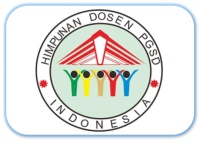Peningkatan Hasil Belajar Tematik Terpadu Siswa Menggunakan Model Problem-Based Learning di Kelas III Sekolah Dasar
Abstract
Keywords
Full Text:
PDFReferences
Arikunto, S. (2006). Prosedur Penelitian: Suatu Pendekatan Praktik. Rineka Cipta.
Desyandri, & Amris, F. K. (2021). Pembelajaran Tematik Terpadu Menggunakan Model Problem Based Learniing Di Sekolah Dasar. PAKAR Pendidikan, 5(4), 29–39. https://doi.org/10.24036/pakar.v16i2.43
Eliyasni, R., Anita, Y., & Hanafi, A. S. (2020). Proses Pembelajaran Tematik Terpadu dengan Model Problem Based Learning (PBL) di Sekolah Dasar. Jurnal Mutiara Pendidikan Indonesia, 5(2), 1–8.
Eliyasni, R., & Husna, S. A. (2022). Peningkatan Hasil Belajar Peserta Didik Pada Pembelajaran Tematik Terpadu Dengan Menggunakan Model Problem Based Learning di Kelas IV SDN 11 Pancung Soal Pesisir Selatan. Journal Of Basic Education Studies, 5(2), 466–474.
Juanda, A. (2019). Pembelajaran Kurikulum Tematik Terpadu. In CV. Confident. Deepublish.
Kartika, R. (2018). Pengaruh Model Problem Centered Learning terhadap Kemampuan Menulis Puisi Kelas X SMK PAB 3 Medan Eetate. Jurnal Pendidikan Bahasa Dan Sastra Indonesia, 3(1), 60–67.
Kusumastuti, A., & Khoiron, A. M. (2019). Metode Penelitian Kualitatif. Lembaga Pendidikan Sukarno Pressindo Kota Semarang.
Mansurdin, & Audia, D. (2020). Peningkatan Hasil Belajar Siswa Pada Tematik Terpadu Menggunakan Model Problem Based Learning (PBL) Di Kelas IV SDN 08 Baringin Kabupaten Agam. E-Journal Pembelajaran Inovasi …, 4(1), 95–104.
Mansurdin, & Fahrani, A. (2022). Peningkatan Hasil Belajar Peserta Didik pada Pembelajaran Tematik Terpadu menggunakan Model Kooperatif Tipe Make a Match di Kelas V SDN 11 Lubuk Buaya Padang. Jurnal Pendidikan Tambusai, 6(2), 15371–15378.
Mansurdin, & Irwan, V. (2020). Penerapan Model Problem Based Learning dalam Peningkatan Hasil Belajar Tematik Terpadu di Sekolah Dasar. Jurnal Pendidikan Tambusai, 4(3), 2097–2107.
Mu’alimin, & Cahyadi, R. A. H. (2014). Penelitian tindakan kelas Teori dan Praktek. In Ganding (Vol. 44, Issue 8). Ganding.
Pujiati, P. (2022). Penerapan Model Pembelajaran Problem Based Learning Untuk Meningkatkan Hasil Belajar Matematika Topik Aritmetika Sosial. Pedagogia: Jurnal Ilmiah Pendidikan, 14(1), 1–6. https://doi.org/10.55215/pedagogia.v14i1.4787
Sofyan, H., Wagiran, Komariah, K., & Triwiyono, E. (2017). Problem Based Learning dalam Kurikulum 2013. UNY Press.
Usriyah, L., Muhith, A., Ansori, & Masrukhin. (2019). dari Pembelajaran Tematik Terpadu hingga Pembelajaran Literasi. In Imtiyaz (Issue April). Imtiyaz.
Vachry Dhani, Yeni Erita, Novalina INDRIYANIc, & Wiwit SANJAYA. (2023). Analysis of the Needs for Civics and Social Sciences Learning Design Based on Technology, Information, and Communication. Journal of Digital Learning and Distance Education, 1(9), 362–368. https://doi.org/10.56778/jdlde.v1i9.60
DOI: http://dx.doi.org/10.24036/e-jipsd.v11i3.14666


